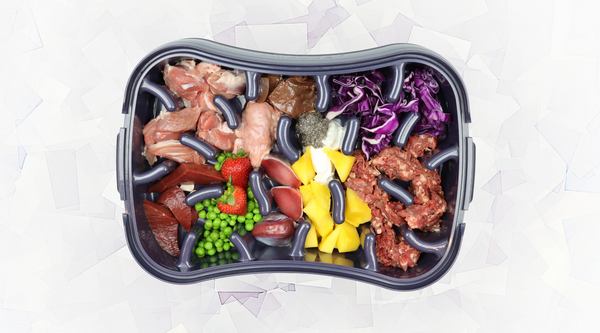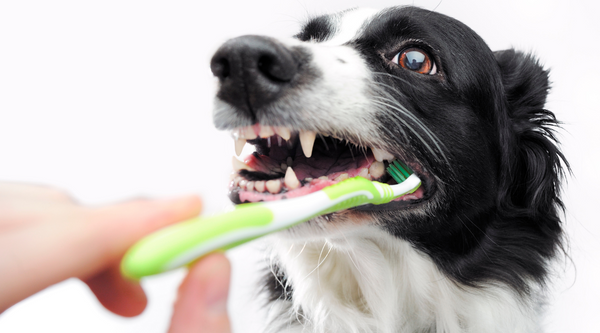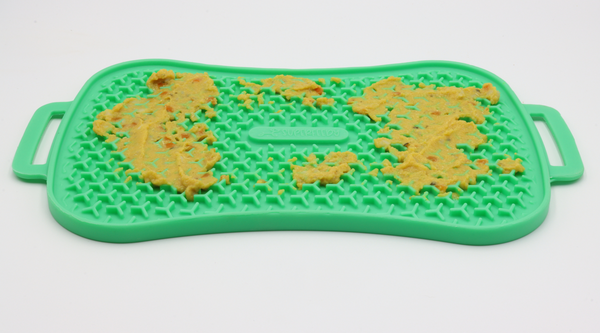The Health Benefits of Coconut Oil for dogs
Coconut oil is known for its health benefits due to the type of fats. One of the few foods that can qualify as a "superfood" is coconut oil, almost exclusively saturated fat (more than 90%). You must be wondering, "Isn't fat bad for you?". The answer is no. The fats divide into two categories: saturated and unsaturated. There are several different types of fats within each category.
The secret to coconut oil's success is MCTs. Medium-chain triglycerides (MCT) are essential fats that have a variety of health benefits, including digestion improvement, immune system support, weight loss, skin and coat health, and thyroid health.
The MCT consists of Lauric Acid, Capric Acid, Caprylic Acid, Myristic Acid, and Palmitic Acid. Additionally, coconut oil contains about 2% linoleic acid (polyunsaturated fatty acids) and 6% oleic acid (monounsaturated fatty acids).
Lauric acid is antibacterial, antiviral, and antifungal. Furthermore, MCTs provide immediate energy and a source of fuel, enhancing athletic performance and assisting weight loss. Capric and caprylic acids have similar properties to lauric acid and are best known for their antifungal effects. A dog's thyroid function is balanced by coconut oil's MCTs, causing overweight dogs to lose weight and sedentary dogs to feel more energetic.
Now for the fun part.
Five uses of coconut oil for dogs
Unlike other oils, coconut oil is derived from the nuts (fruit) of the coconut palm.
If you're like many dog owners, you may be looking for ways to improve your pet's health. Coconut oil can be a great addition to your dog's diet, as it has a range of potential benefits. Coconut oil is high in saturated fat and medium-chain triglycerides, which have been shown to have some health benefits for dogs, ranging from weight management to enhanced cognitive function. Coconut oil can also be soothing for upset tummies, help to reduce allergic reactions and prevent infection.
There are many benefits of coconut oil; please consult your veterinarian before adding coconut oil to your dog's diet to ensure the benefits outweigh any potential risks.
Add Coconut Oil to Meals and Treats

Is your dog struggling to lose weight or feeling a little sluggish? If so, adding coconut oil to their diet may be the answer. Coconut oil is a natural source of medium-chain fatty acids, which can improve nutrient absorption, help counteract digestive disorders, and reduce overall inflammation in the body. It's also a great way to make your pet's food more palatable. Just be sure to consult with your veterinarian before making any significant changes to your dog's diet.
Coconut oil can be used in moderation as part of a balanced diet for dogs. If your dog is small, start with 1/4 teaspoon. Larger breeds may handle up to one tablespoon. Be sure to watch for signs of stomach distress, like diarrhea or allergic reactions, and stop offering coconut oil to your dog if you notice any adverse effects. If your dog does seem to have an allergic reaction to coconut oil, consider alternatives like salmon oil or flaxseed oil, which also contain healthy omega-3 fatty acids.
Adding coconut oil to your pet's diet can have many benefits, so long as it's used in moderation. With a bit of experimentation, you may find that coconut oil has a positive effect on helping your furry friend live a healthier life. Consult with your veterinarian before making any changes, and choose organic, cold-pressed virgin coconut oil.
Apply Coconut Oil to Your Dog's Skin

Coconut oil can help lubricate your dog's itchy skin and prevent flaking or irritation, especially during the winter months. If your dog has dry skin, hot spots, dandruff or other skin conditions, coconut oil can increase lipid levels on the skin's surface.
Rub a small amount into your hands and massage into the skin, running your fingers through your pet's fur. Just be aware that your dog may lick himself a bit more frequently! The coconut oil may also improve your dog's coat health and help it appear more sleek and glossy.
You can also use coconut oil to repel fleas and ticks while hiking with your dog without chemicals. So why not try it? Your dog will thank you!
Use Coconut Oil as a Coating on Pills

Do you have trouble getting your dog to take her medicine? If so, coconut oil may provide a helpful solution. Coconut oil can be used to coat pills, making them more enticing and palatable for dogs. This can help your canine friend swallow the pill more easily and without fuss. So if you're looking for an easy way to get your pup to take her meds, coconut oil may be the answer.
Use Coconut Oil to Soothe Wounds

We already know the anti-inflammatory, antifungal and antibacterial properties of coconut oil. If your dog has cuts, bruises, or cracked pads, coconut oil can be used as a natural topical antibiotic. Coconut oil is known for its antibacterial, antiviral, and antifungal properties. It contains lauric acid; it is a fabulous immune builder, both orally and topically.
Coconut oil treatment can help soothe wounds and promote healing. Dogs with seasonal allergies may also find relief from coconut oil on sores.
Brush your dog's teeth with Coconut oil

Brushing your dog's teeth with coconut oil is a great way to keep their mouth healthy. Coconut oil has antimicrobial properties, which help to kill harmful bacteria and plaque that can cause dental disease. You can add coconut oil to your dog's toothpaste or apply it directly to their teeth. Either way, your dog will love the taste, and you'll be helping to keep them healthy!
Coconut oil for dogs: side effects
Coconut oil is a safe and edible oil that can benefit dogs, such as weight management or enhanced cognitive function. However, like with humans, these benefits should be weighed against any risks. For example, if your dog has too much coconut oil, it might experience weight gain or get diarrhea. Additionally, if your dog has an allergy to coconut oil, they might experience itching or other symptoms that may signify intolerance.
So before you start using coconut oil on or in your dog's food, always consult with your veterinarian to make sure it's the right decision for your pup!
How to Give Your Dog Coconut Oil
There are plenty of creative ways to add coconut oil to your dog's diet. But make sure that you're not adding too much. A little goes a long way. Start with no more than a 1/4 teaspoon for smaller dogs—larger breeds may handle up to one tablespoon integrated with their meals. Seek vet advice about what dose is appropriate for your dog.
A fun recipe to try include:
Combine a banana, 1/4 teaspoon coconut oil, and 1 tablespoon of peanut butter (xylitol free) on a lick mat to spice up the traditional peanut butter treat. This will entertain and engage your dog for a while. Freeze and store in the fridge before serving to make it more challenging.

Conclusion
As you can see, coconut oil has a variety of uses for dogs. Whether you're looking to repel pests, soothe wounds, or make it easier for your dog to take her medicine, coconut oil may be the answer. Just consult with your veterinarian before starting to use coconut oil on your pup, and always follow the dosage instructions carefully.
Super Feedy 4-in-1 Versatile Slow Feeder Bowl
As responsible pet parents, we know that you want to do everything to help. Living with a sick dog after a meal is no fun. Our two doggos, Marley and Belle, both like to eat fast! So we know exactly what it's like to live with a dog in pain and discomfort after eating.
We are introducing the Ultimate, Versatile 4-in-1 Slow Feeder Dog Bowl! We're excited this new slow feeder dog bowl combines modern design with innovative functionality. It's more than just a slow feeder. A slow feeder bowl that naturally slows your dog down at chow time, as well as a reversible lick mat so your pet can enjoy a variety of delicious foods like purees, stews, or wet food. An excellent bowl for easy delicious food prep and storage doubles as a dog-friendly travel bowl for your canine adventures.
Your dog will have a happier, healthier mealtime experience giving you peace of mind.




